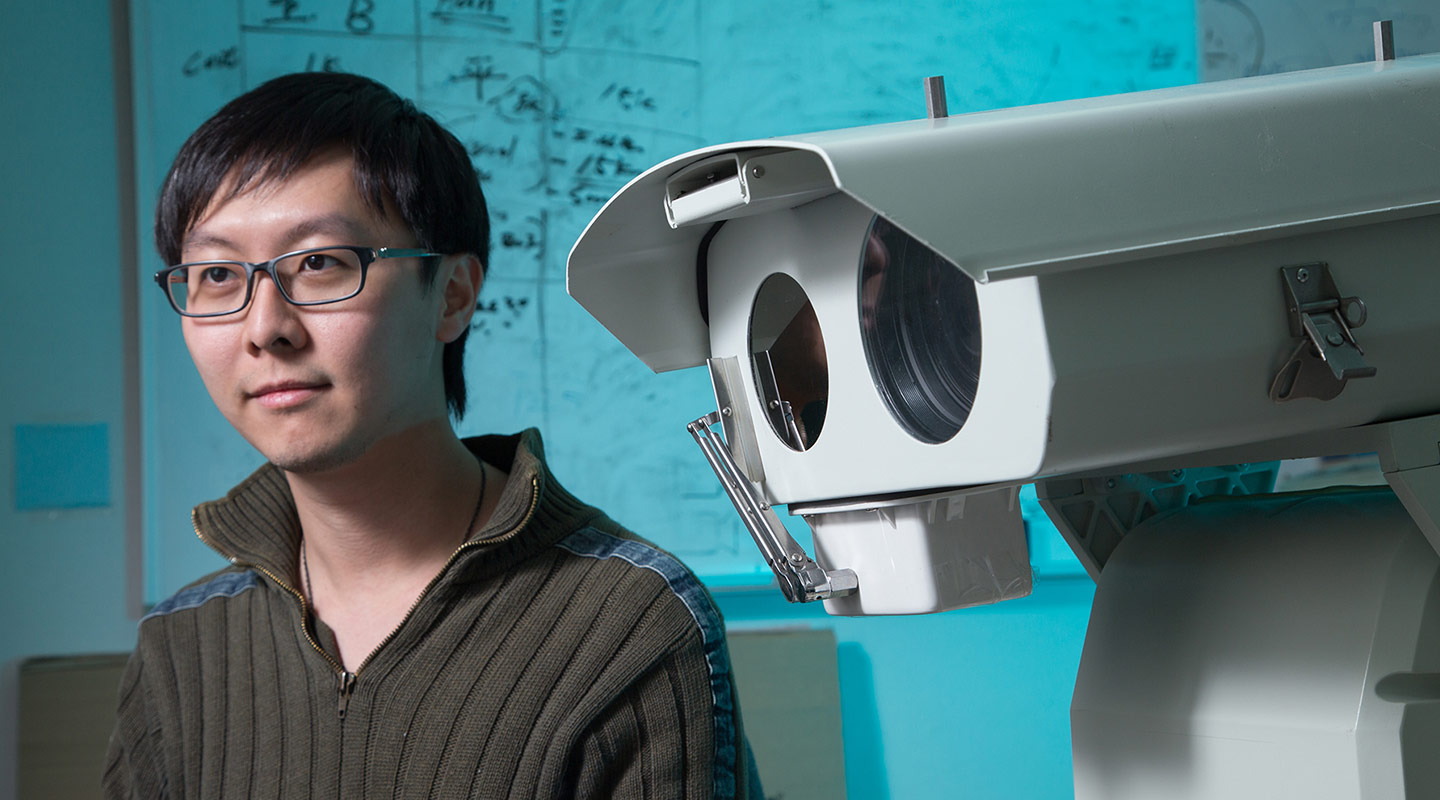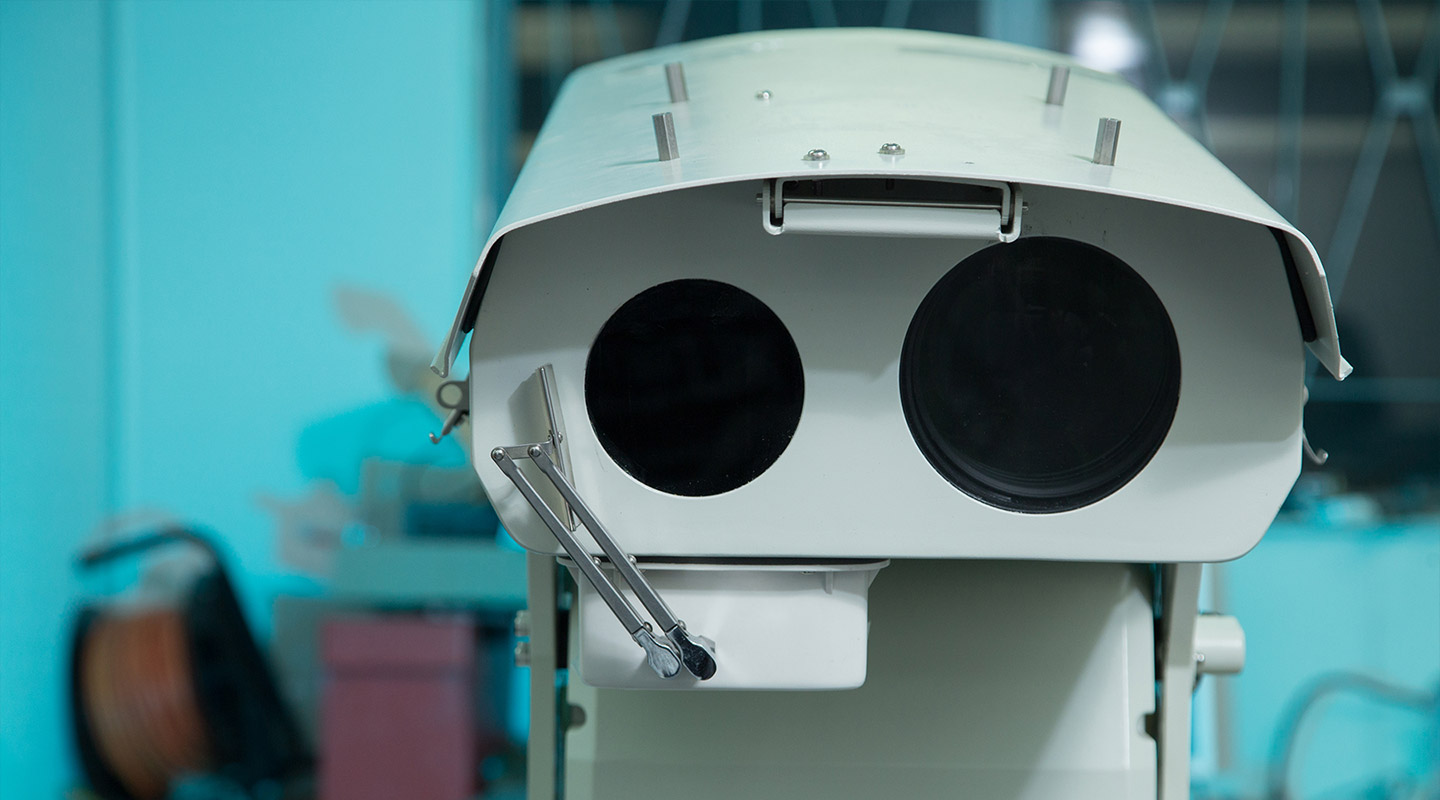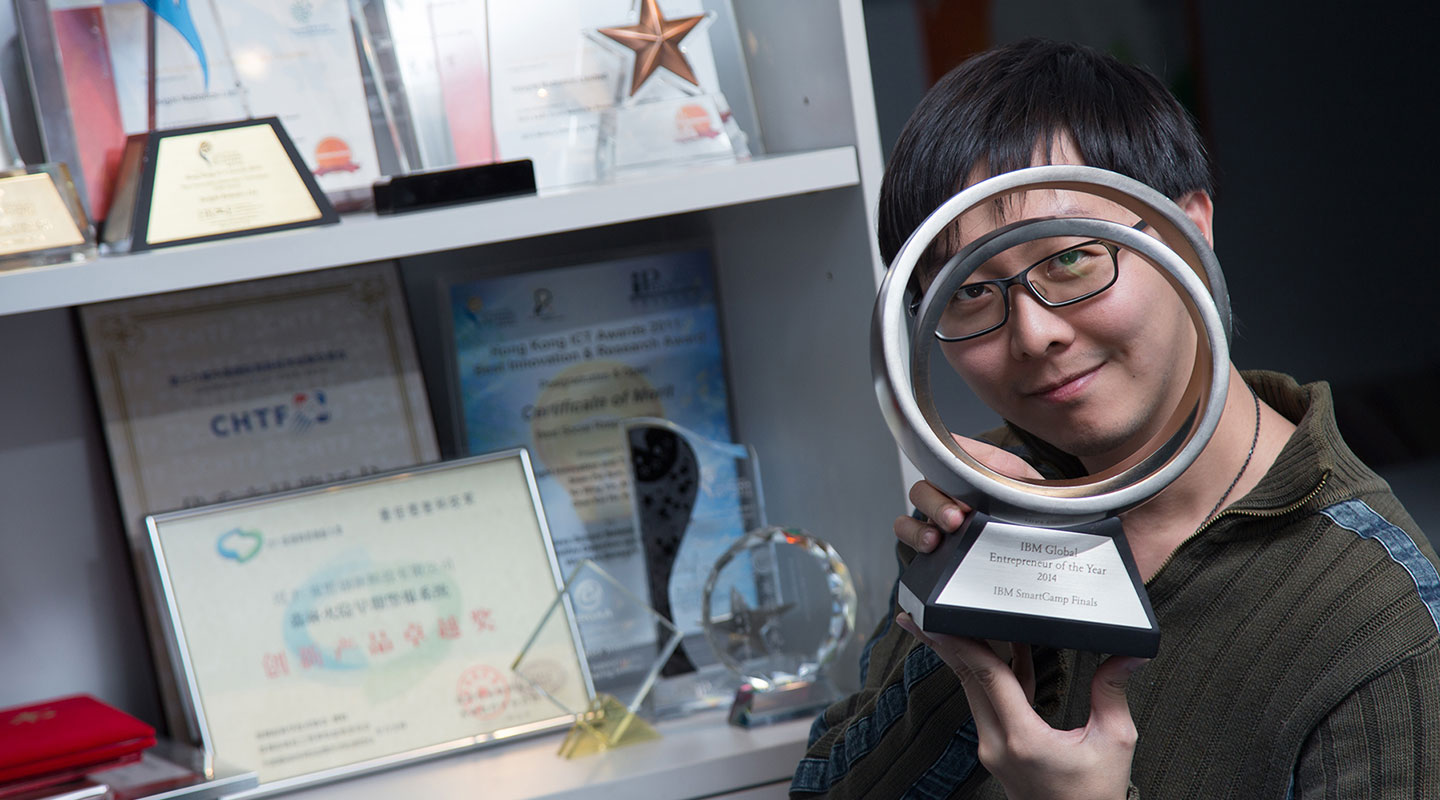Dear readers, With the launch of e-newsletter CUHK in Focus, CUHKUPDates has retired and this site will no longer be updated. To stay abreast of the University’s latest news, please go to https://focus.cuhk.edu.hk. Thank you.
Smart Solutions for Natural Disasters
Engineering alumnus Rex Sham develops the world’s most advanced fire detection robot, achieving public good and profit at the same time.

Humans’ wariness of robots has long been the subject matter of popular movies. In The Terminator, SkyNet sets out to eliminate humanity, which it sees as a threat to planet Earth. And in The Matrix, humans are used as batteries to provide a power source for robots. On this issue, Rex Sham remains an optimist, believing that robots can make the world a better place. ‘Consider the high-tech suit of armour in Iron Man that helps propel the hero through the air at great speed. Or the multi-functional R2-D2 in Star Wars. It is these robotic images that are more realistic and trustworthy.’
A graduate of CUHK’s Department of Computer Science and Engineering, Rex is a creator of robots. In 2009, he founded Insight Robotics Ltd, which specializes in robotic systems that monitor and detect forest wildfires. Looking like WALL-E from the movie of the same title, the robot he developed can accurately detect a small fire of 2 metres x 1 metre in size within a 5-km radius, and send out alerts in less than a second.

‘Pilot tests carried out in a Canadian forest have shown that our robot can spot a wildfire 13 km away, which turned out to be a world record. At that time, there was a heavy mist and the human eye couldn’t see clearly within a 500-metre radius. But our robot was equipped with thermal imaging sensors and could spot a fire despite all barriers in the surroundings. This is something even a satellite couldn’t accomplish. So I dare claim that my robot is the world’s number one in detection accuracy.’
Traditionally, forest fire watch has been performed by people stationed at watchtowers or through closed-circuit television surveillance. However, such methods tend to lead to erroneous reporting or alert delays. To compound the problem, forest fire watch is a sunset industry that young people are reluctant to join. ‘Being stationed deep in the mountains is an experience fraught with hardship. No television signals could be received, let alone internet access to Facebook. Given the inadequate power supply, there would be no electric water heaters and in winter, instead of taking a shower, you could only clean your body with a towel doused with boiled water. When the older-generation staff are all retired, will there be any newcomers willing to succeed them?’
Although robots can resolve the problems of efficiency and manpower shortage, there are inevitable concerns of them displacing people from their livelihoods. Rex insisted that robots will only take over jobs that people are unwilling to do like forest fire watch or work that is too hazardous for humans to undertake, such as disaster relief in dangerous areas. ‘It makes no sense for a person to risk his own life to save others. The Tianjin explosion saw heavy losses of lives and casualties among the firefighters. If we had sent robots into the affected warehouse to spearhead the rescue work, the losses incurred would be a few million dollars maximum, rather than precious human lives.’
Robots should be deployed for work that is unsuitable for humans but jobs requiring a human touch should be done by people only, he opined. ‘Nurses are least suitable to be superseded by robots. Recently, many enterprises have rolled out smart systems for elderly care, a practice I do not agree with. The reason why humans are humans is that we all have a sense of dignity, crave for interaction with others and hope that someone will take care of us with heartfelt commitment, instead of by robots sent in to accomplish a mission. Robots are devoid of love.’
Last year at the IBM SmartCamp Global Finals, Rex beat top contestants from around the world to be named winner of the Entrepreneur of the Year award, based on the fire detection robot he created. According to him, inventions that benefit the world will also be profitable ones. ‘Robots that prevent forest fires, safeguard forested land and reduce global carbon emissions are, without doubt, a great contribution. But why do clients spend tens of thousands of dollars on their purchase? Certainly, what motivates them is the business factor—every time the forested land they have cultivated is ravaged by fire, they will lose millions of dollars. But with the robots they purchased, the risks of fire would be significantly reduced, enabling these enterprises to save on insurance that would offset the cost of acquiring the robots. Over the ensuing year, more trees will be produced, bigger profits will be generated and the air everybody breathes will become fresher.

‘I hope to achieve public good and profit at the same time. If I were only interested in the money, I would not have entered into the robots business for sure, but would be writing software programmes for stock speculation.’
He admitted that these values he held had been shaped by CUHK’s humanistic campus environment. ‘I am a news junkie. Back in those years, I took many journalism courses and was the deputy head (external affairs) of the campus’s radio channel. When I was shooting documentaries under my tutor’s guidance, I came across numerous deep-seated contradictions in Hong Kong society. It made me realize that apart from earning a living, one could choose to go to the forefront and lead a social movement or an enterprise, relieve the world of a problem or even fix it.
‘So long as we remain concerned with the happenings around us, in other countries and the other side of the world, our inventions will be relevant to what the world needs. I expect myself and the other engineers of my company to believe that we can save the world ultimately.’
Reported by Christine N., ISO